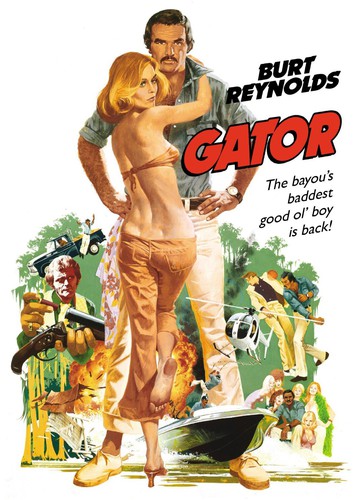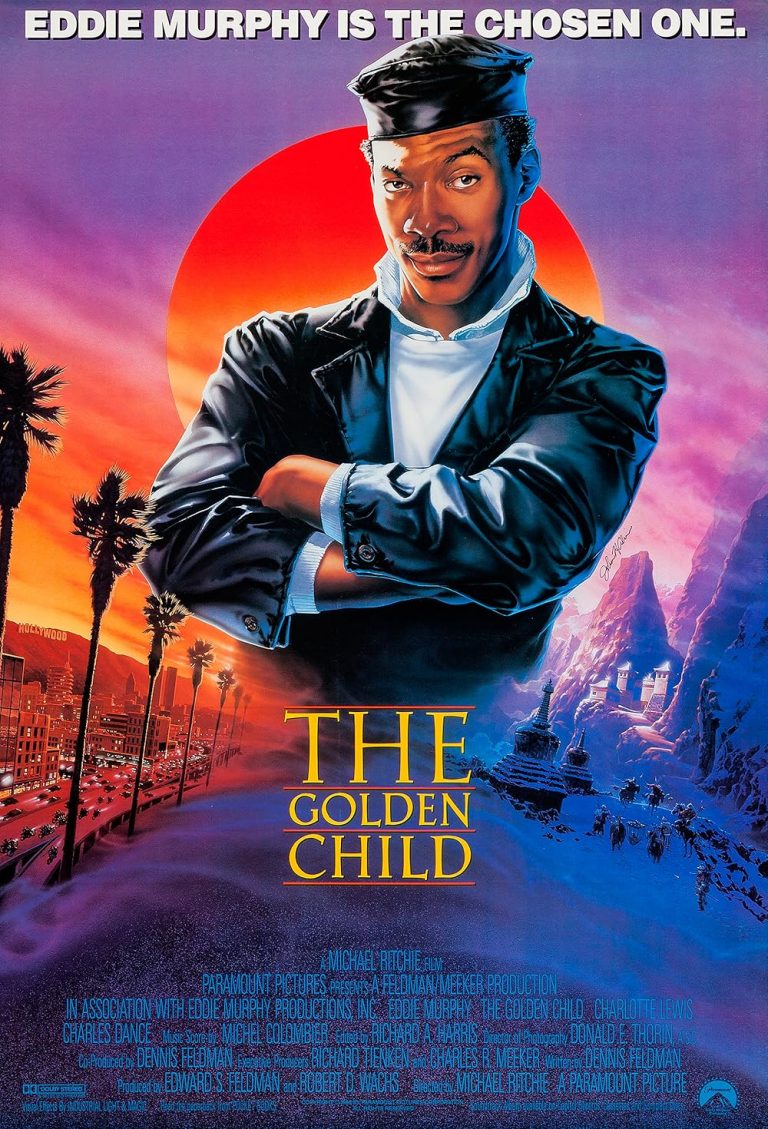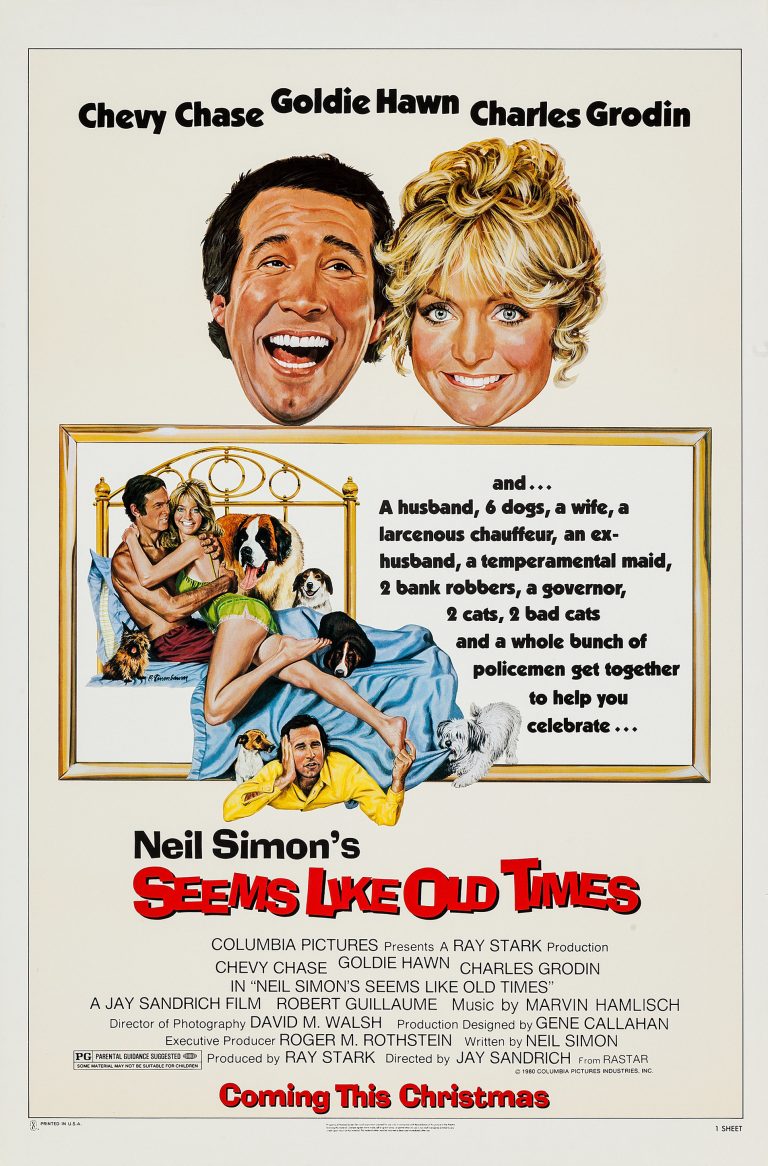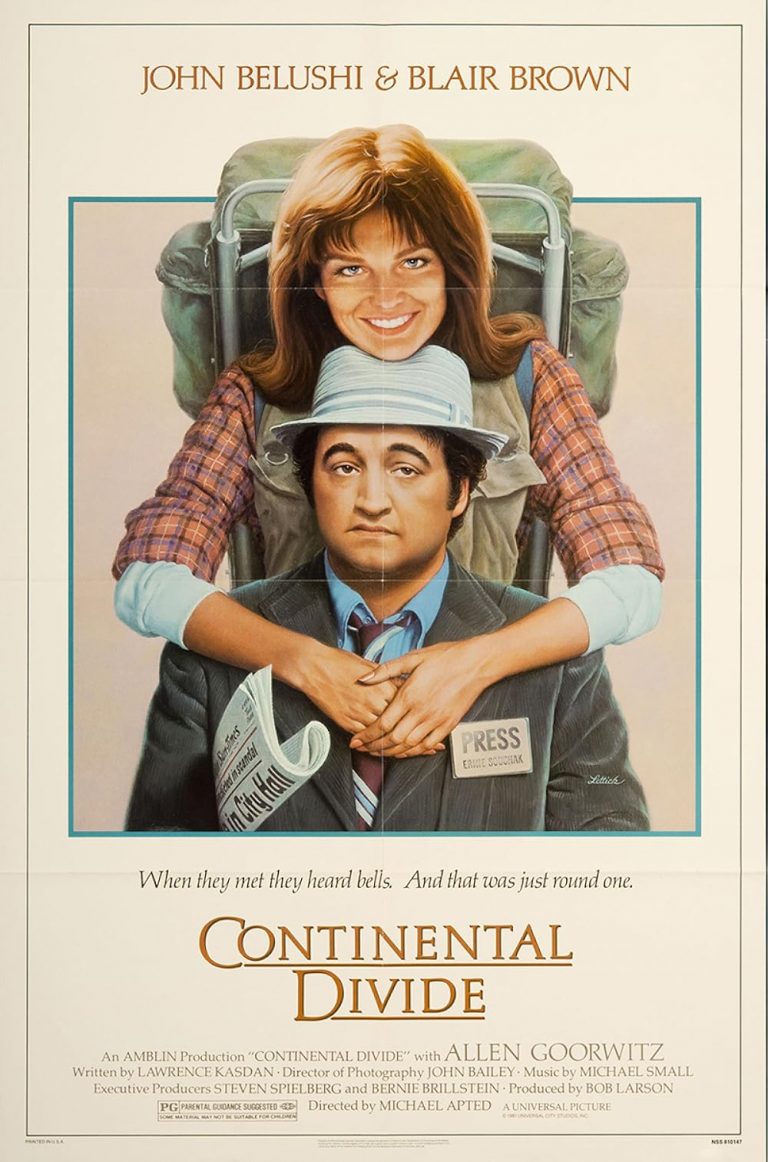Starring: Burt Reynolds, Jerry Reed, Lauren Hutton, and Jack Weston
Grade: B
It turns out The Empire Strikes Back wasn’t the first film to use the exchange of, “I love you” and the person responding, “I know”. There’s a little fun fact for you.
Summary
In a private meeting with his advisors, the Southern governor (Mike Douglas) explains that Dunston County is so horribly corrupt it has ruined his stance with the public, despite how good a job he has done with everything else. One advisor brings in Irving Greenfield (Weston), one of the top men from a strike force in the U.S. Justice Department from New York. Greenfield brings up how Bama McCall (Reed) runs Dunston County, but the governor already knew this fact. What he didn’t know was that Bama grew up with moonshiner Bobby “Gator” McKlusky (Reynolds). Recently, Gator has been released from state prison after serving 26 months on a 2nd offence. Greenfield believes they can get Gator to work with them to gather evidence against Bama, since they have an idea that he’s still making moonshine. Since getting Gator will clean up the county and help the governor in his re-election campaign, he agrees to help Greenfield with whatever he needs.
Somewhere in a swamp, Gator hangs with his young daughter and father, as his father gives him shit for being lazy now that he’s out of prison and for his daughter not being in school for quite some time. Soon after, Greenfield and his army from the state revenue department show up in boats and a helicopter to arrest Gator and his small family. His father and daughter stay back and hide while Gator diverts them on a speedboat. Even though Gator manages to escape, he has to meet Greenfield back at the swamp house because his father and daughter were both apprehended. To convince Gator to help them in capturing Bama McCall, Greenfield notes that if he doesn’t, his father will be arrested for moonshining and his daughter will be sent to a foster home. Right now, all they got is $20,000 in back taxes that Bama didn’t pay but no other evidence against him, even though he’s suspected of doing pretty much everything under the sun. Trying to protect his family, Gator relents and agrees, leaving the next morning with Greenfield. Following this, we see Bama McCall go and collect some money from this manager of a strip club after beating up the guy’s two bouncers. However, the guy can’t pay because he doesn’t actually own the club. It’s some guy from Detroit. Once Bama leaves, we see Gator and Greenfield enter the county, with Gator dropping off Greenfield at a shitty motel while he stays at a nice hotel.
Shortly after, there’s a parade for Mayor Caffrey (Dub Taylor), and Gator comes by to observe. During the festivities, a woman named Emmeline Cavanaugh (Alice Ghostley) is apprehended by a cop for her loudly protesting Caffrey’s corruption in front of a bunch of onlookers. She hits the cop with her sign twice, forcing him to escort her out. Also at this parade, Gator finds Bama and approaches him. They both seem happy to see each other, exchange pleasantries, and reminisce on old times. As they talk, Bama introduces Gator to his 7’3” bodyguard Bones (William Engesser). After Bama tells Bones to fetch Caffrey to come meet Gator, they talk some more, only for Gator to be distracted by TV reporter Aggie Maybank (Hutton).
That night, Gator has dinner with the Caffrey, Bama, and some women. As Gator meets Bama’s other bodyguard, the aptly named Smiley (Burton Gilliam), Bama makes a private phone call to some guy named Pogie, asking him to find whatever he can on Gator. The next day, Gator goes with Bama on one of his collecting trips. Carrying his sawed-off shotgun, Bama takes Gator into a black bar and the main guy Bama is targeting tries to run away, so he starts firing inside the place. Outside, they almost get run over by the guy, but Bama is able to shoot out his tires and collect the guy’s money right after. At lunch, Bama tells Gator he’ll start him out at $400 a week to collect for him, and he accepts. Their lunch is interrupted by Aggie who complains to Bama that he cancelled the documentary they were working on about poverty in Dunston County. He denies it but says nobody watches shit like that anyway. Aggie counters with the fact that television is independently owned, and there’s an F.C.C. regulation that forbids interference by local political authorities. After threatening to take the complaint to the Civil Liberties Union, she leaves, with Gator eyeing her the whole time.
The pieces are starting to fall into place as Gator goes to work for Bama. However, he soon finds out that Bama is much eviler than he initially thought. Maybe it’s a good thing Gator took this job. This man needs to be stopped!
My Thoughts
It’s hard to compare Gator to its predecessor in White Lightning, mostly because of the vast differences between the two. Tonally, this sequel shifts to a more light-hearted comedic spin, and the character of Gator McKlusky is almost a totally different person.
Let me put it this way:
This is more of a Burt Reynolds film rather than a story focused on “Gator McKlusky”. You start to notice this almost immediately, as Gator even starts to lose his southern accent as the movie progresses.
If you’re familiar with Burt Reynolds-centric movies, you know the type of movie you’re getting. It’s action-based, there’s goofy humor sprinkled throughout, Reynolds is the tough guy charmer who falls for a girl, and he’s going to kick ass from beginning to end. Though White Lightning had elements of this sort of stuff, it was still a much more serious film, and Gator was a very different character. Now, with Reynolds in the director’s chair, he changes the heart of the franchise into something different. I will give him credit where it’s due though. It was more entertaining than the first film. It’s just hard to rate this one within this two-film franchise because of how different they are comparatively. You can’t really match the two up against each other because Gator barely continues the story/character arc. It’s basically an unofficial, standalone sequel. Though Gator doesn’t do the first film justice and barely even references his past adventure as an informant, I still thought it was a better movie. However, superfans of the first film will have a problem with this sequel, which puts me in the minority crowd with where I stand on the matter. Then again, I’m not a huge fan of those south-focused movies, so I wasn’t attached to the film’s predecessor as much as others may be. This is probably why I don’t have an issue with saying Gator is better. Even then, White Lightning laid out the blueprint. You don’t have to follow it exactly, but you should at least respect it. In all honesty, they didn’t do that.
This might have had more success had it just been labeled as a different film entirely. With a few changes here and there, this could’ve been an American James Bond movie. The blueprint for it was right there, even down to how the main villain acts, along with his quirky henchmen.
With that being said, it’s interesting to see where Gator is at now in life. He’s relaxed and a lot more mature compared to his younger self. Yes, he’s still in the moonshine business, but his attitude this time around is much different. As I said before, since this this film strays further away from the character of Gator McKlusky, there are plenty of moments throughout that don’t seem natural to the character. For example, when he goes with Bama to collect his money, Bama brings his sawed-off shotgun and Gator is shocked, asking what the hell it is. The Gator from White Lightning wouldn’t have batted an eye, and you can’t tell me any different. In an undercover situation, much like how Gator was in the first film, he would’ve gone with the flow to get deeper. My only explanation to this behavior is that maybe the stakes weren’t high enough. At first, it felt like they were. After all, his father going to jail, and his daughter being put in a foster home would be a good enough reason for most. However, after those initial scenes where we are introduced to them, it’s all forgotten. He talks about them here and there, but his attitude throughout this mission, especially to Greenfield, is lackadaisical and borderline careless. He needed more motivation to take the job seriously because anytime there’s a potential “out” for him to leave the mission, he tries to take it. He’s not nearly invested like he was when Sheriff Connors killed Donny in White Lightning. There, his intensity was felt. In Gator, he felt more removed than he should’ve been. Had they had some scenes where he calls his daughter and father mid-mission to check up on them, we would’ve felt that connection more. Unfortunately, the only thing close to this is when he mentions his daughter a few times to Aggie.
Speaking of Aggie, the romance in this film was a hundred times better in Gator than Lou in White Lightning. There was more conflict, Lauren Hutton was much more likable, and we want to see them together because of how their short relationship changed both characters for the better. In fact, during the final scene, they both mention how much they’ve learned from each other. We felt it. Their romance blossoming in the second half of the film was one of the better parts of the movie. If anything, I would’ve enjoyed Hutton’s presence a bit more in the first half to establish her character a bit more. For some reason, I loved the ending too. There’s a lot of issues in pursuing a long-term relationship, and it was refreshing to finalize it in the manner they did. Even if you don’t want to leave, you never want to stand in the way of the happiness of someone you love. It was a surprisingly sweet/realistic message for a movie like this, beating the hell out of the ending of the first film.
Also, the gap in Aggie’s teeth wasn’t noticeable until she pointed it out. Now, I can’t stop thinking about it.
Greenfield was a decent supporting character, but he was introduced in a way that made no sense. He’s one of the “top guys in a strike force”? Are you kidding me? Who else is in this strike force? Marty Feldman? Throughout this mission, Greenfield proves to be an incompetent moron. Even though Gator has only been on one previous mission in his life, he handles this job immensely better than “strike force” Greenfield. He’s out of shape, can’t fight, and gets outsmarted consistently. I don’t know what his use was in this mission. There’s no way I would’ve found myself in the situations he managed to find himself in and not call for back up. In the hospital, after he got beat up by Bones and Smiley, he tells a cop to get him a private phone so he can call somebody. Not only does this go nowhere, but why would he think to trust this cop? He’s well aware of Dunston County’s corruption, and the guy from the bar that outed him as an agent was a corrupt cop in uniform. Why does he automatically trust this random cop in the hospital, and how can you not call him an idiot for this?
Jerry Reed was terrific as Bama McCall. This was exactly the type of villain needed to put Gator over White Lightning. It’s hard to say if he was a better villain than Ned Beatty’s Sheriff Connors, but it’s worth the debate. At worst, they’re tied in my mind. Bama runs Dunston County much like how Connors ran Bogan County. He keeps it as ruthless as Connors, but he gets violent at a much quicker pace. Connors was enough to intimidate with his presence, but Bama is a guy who will snap in a hurry and seems to welcome violence. He loves carrying that gun around with him and enjoys involving his henchmen into things. At first, he seems like a regular old bad guy that we want to see Burt Reynolds take down, but then we find out how downright despicable Bama can be.
Gator finds Bama at a brothel he frequents but is horrified to find out that no girl there is older than 16 because “Bama likes it that way”. If you really want to set your villain apart in a movie, this is the way to do it. How awful is this?!
Following this, Gator is stunned, even more so when Bama tries to justify it with his “the world is full of takers” speech. He even gets defensive saying, “I didn’t make the world the way it was”. It was nuts. Reed was reveling in this role, laughing his way through it while daring anyone to stop him. Reynolds does a very good job in this scene and the few that follow it. He looks out of it, completely done with this mission after seeing what his old friend is up to. He’s appalled at what he witnessed and asks to get out of Bama’s payroll, despite being undercover. It’s as if he doesn’t care about the consequences anymore. This is another part of Gator’s characterization that’s a bit wishy-washy. It would’ve made sense for this to be the moment that inspires Gator to take down Bama while staying under him like how he acted in the first film but here, the grown-up version of Gator doesn’t want the stress. Originally, I would give them a bit more credit for adding another layer to this version of Gator, but it doesn’t make sense because his family’s fate is still on the line regardless, something I brought up earlier. Also, he gives Bama an “out” by saying he could pay a measly $20,000 to make up for taxes he owes, but Bama refuses because he likes the position that he’s in.
Why try and help Bama? He’s a lost cause.
The deaths before the climax seemed too dark for a film like this, but the supporting cast was much better this time around. Additionally, the light-hearted tone was a welcomed change, but a lot of the jokes didn’t land, humorous scenes were stretched out too much, and some of it just didn’t make sense. I get that the crazy cat lady loves her cats a little too much, but her having to take them inside city hall while they’re trying to be as discreet as possible is just plain stupid. Little stuff like this has “Burt Reynolds humor” written all over it.
Though it doesn’t honor the film that started it all, Gator is a sequel that improves on a lot of aspects the first film failed on. At the same time, it’s just a bit more fun. Had White Lightning been made in the same vein of this film, Gator would’ve been given much more credit. Gator may be different, but he’s still Burt Reynolds, which is enough to get us through this adventure. On top of this, the supporting characters are great, the villains are just as good as Sheriff Connors from the first film, the stunts are solid, and the romance completes it. In general, it’s a better and worthy sequel.
According to Rotten Tomatoes, this film has a rating of “0%”? Fuck off.





+ There are no comments
Add yours